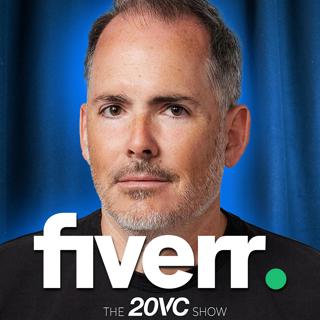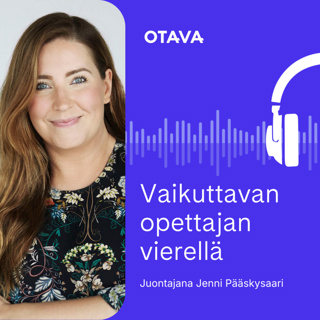
20VC: Why Model Providers Will Kill Many Startups Moving into the Application Layer | Why Deepseek is not a Threat to OpenAI & Why OpenAI Beats Anthropic | Apps vs Models vs Infrastructure: Where is Value in AI with Sridhar Ramaswamy, Snowflake CEO
Sridhar Ramaswamy is the CEO @ Snowflake, the $60BN public company with $3.5BN in revenue growing 30% per year. Sridhar joined Snowflake following his company, Neeva, being acquired by them for $150M. Prior to founding Neeva, Ramaswamy spent 15 years at Google where he had an integral part in the growth of AdWords and Google's advertising business from $1.5 billion to over $100 billion. In Today's Episode We Discuss: 1. OpenAI vs Deepseek vs Anthropic: Why will OpenAI beat Deepseek? What does no one see with Deepseek that they should see? Why has OpenAI beaten Anthropic? What elements turn a model from a commodity into a sustaining product suite? Will model providers become application providers? Will OpenAI be the biggest killer of startups in the next 10 years? 2. Snowflake vs Nvidia & Databricks: To what extent is Sridhar concerned NVIDIA will move into the data layer and compete with Snowflake? How does Sridhar view the competition from Databricks? What have they done better than them? What have they done worse than them and lost on? Does being private hurt or help Databricks in their fight against Snowflake? If Sridhar could, would he take Snowflake private today? 3. Leadership, Parenting, Money: Do richer leaders make better leaders? How does being rich change the mindset of a leader? What are Sridhar's biggest lessons when it comes to parenting? What about the way that Sridhar was brought up, did he do deliberately differently with his kids?
10 Helmi 202555min

20Product: Product Secrets Behind Uber and Opendoor | How AI Changes the Role of the PM & The Product Development Process | How to Hire the Best Product Teams & What No One Does That Everyone Should Do with Brian Tolkin
Brian Tolkin is the Head of Product @ Opendoor where he has spent the last 6 years and is responsible for product strategy and product and design teams. Before Opendoor, Brian spent an incredible 5 years at Uber through their wildest growth periods. In Today's Episode with Brian Tolkin: 03:53 Brian's Journey at Uber: Launching China Pool 05:07 Product Lessons from Uber's China Launch 08:22 The Role of a PM in a Pre vs. Post AI World 10:16 Product Development Process in an AI World 17:43 The Importance of Simplification in Product Management 19:21 OKRs and Prioritization in Product Management 23:12 The Importance of Feedback Loops in Product Development 23:38 Evaluating Product Changes: User Adaptation vs. Bad Decisions 25:00 Balancing Gut Instinct and Data in Product Leadership 25:38 The Role of Simplicity in Product Design 27:02 Consensus vs. Dictatorial Product Leadership 27:54 Hiring for the Best Product Teams 31:33 How to do Effective Sprint Management 38:39 Quickfire Round: Insights and Advice
7 Helmi 202544min

20VC: Affirm Max Levchin on Why Grading Talent by Letter (A or B) is Total BS | How to Create a Culture of Post Mortems and Writing | Why You Should Only Study Failure Not Success & The Biggest Surprises Scaling to $18.7BN Market Cap
Max Levchin is one of the great founders and technologists of our time. As the Founder and CEO of Affirm, he has built am $18.7BN monster in the buy no pay later space. Prior to Affirm he was one of the original co-founders of PayPal. Max is also the co-founder and Chairman of Glow, a data-driven fertility company. Max is also an immensely successful angel investor with a portfolio including the likes of Yelp, Pinterest and Evernote. In Today's Episode We Discuss: 04:19 How to Hire the Best People in the World 05:05 How to Manage Extreme Personalities 08:18 Biggest Lessons on Trust and What Happens When Lost 12:05 Is Grading Talent A and B Players Total BS? 15:31 How to Think About Calculated vs Uncalculated Risk 27:18 How to Create a Culture of Post Mortems: Step by Step 32:08 Why Every Person Must Write and How to Create a Writing Culture 36:01 Leadership Lessons from Layoffs 38:38 Is Affirm Losing or Beating Klarna in the US? 47:03 Peter Thiel or Elon Musk: Who Would Max Rather Start a New Company With? 48:37 Quickfire Round
5 Helmi 20251h 2min

20VC: Lime's CEO on Going from Losing $3 on Every $1 to $90M in EBITDA | How Lime Built the Global Leader in Micromobility When Competitors Went Bust | Losing 90% of Revenues in COVID and The Uber Deal That Saved the Company with Wayne Ting
Wayne Ting is CEO of Lime. The global leader in micromobility, the first to achieve a fully profitable year (2022). Last year, Lime did over $600M in gross bookings, $90M in EBITDA. Their 4-year top-line CAGR is 30%. Before joining Lime, Wayne spent four years at Uber in various roles, including Chief of Staff to CEO Dara Khosrowshahi, and General Manager of Uber's Northern California business. Wayne previously served as a Senior Policy Advisor on the White House's National Economic Council under President Obama. In Today's Episode with Wayne Ting We Discuss: Is Lime Really a Good Business: How did Wayne turn Lime from losing $3 on every $1 to $90M in EBITDA? What worked? What did not work? What did Lime do that he wishes they had not done? What did they not do that he wishes they had done? The Moments that Changed Everything: COVID: Lime lost 95% of their revenues overnight. What did Wayne and Lime do to save the business in such a short space of time? Uber Deal: How did the Uber deal led by Uber CEO, Dara, save Lime as a business? Battery Innovation: How did an innovation on the transportability of batteries and replacing them change the entire Lime business? The Dangers of VC Funding and Capital Efficiency: Why does Wayne believe that VC hype cycles are so damaging for companies and sectors? How did the heat around micromobility damage Lime? What did Wayne and Lime do to increase their capital efficiency so much? What worked? What did not? AMA with the CEO of Lime: What company did Lime not acquire that Wayne wishes they had? How did having a stroke change the way that Wayne leads? Which competitor does Wayne most respect and admire? What were his biggest lessons from working with Dara @ Uber?
30 Tammi 20251h 6min

20VC: Deepseek Special: Is Deepseek a Weapon of the CCP | How Should OpenAI and the US Government Respond | Why $500BN for Stargate is Not Enough | The Future of Inference, NVIDIA and Foundation Models with Jonathan Ross @ Groq
Jonathan Ross is the Co-Founder and CEO of Groq, providing fast AI inference. Prior to founding Groq, Jonathan started Google's TPU effort where he designed and implemented the core elements of the original chip. Jonathan then joined Google X's Rapid Eval Team, the initial stage of the famed "Moonshots factory," where he devised and incubated new Bets (Units) for Alphabet. The 10 Most Important Questions on Deepseek: How did Deepseek innovate in a way that no other model provider has done? Do we believe that they only spent $6M to train R1? Should we doubt their claims on limited H100 usage? Is Josh Kushner right that this is a potential violation of US export laws? Is Deepseek an instrument used by the CCP to acquire US consumer data? How does Deepseek being open-source change the nature of this discussion? What should OpenAI do now? What should they not do? Does Deepseek hurt or help Meta who already have their open-source efforts with Lama? Will this market follow Satya Nadella's suggestion of Jevon's Paradox? How much more efficient will foundation models become? What does this mean for the $500BN Stargate project announced last week?
30 Tammi 202555min

20Sales: Why Every Sales Rep Should Do Pipeline Generation & How to Teach Them | Verticalised Sales Playbooks: When and How | How the Best Sales Reps and Leaders Structure Their Time with Carlos Delatorre, CRO @ Harness
Carlos Delatorre is one of the legendary go-to-market leaders of the last 20 years. Today, Carlos is the Chief Revenue Officer (CRO) at Harness, where he oversees global sales and go-to-market (GTM) operations. Before Harness, Carlos was the CRO @ MongoDB and Navan. Carlos is also an investor with a portfolio including the likes of Modern Treasury and Starburst to name a few. In Today's Sales Masterclass We Discuss: 03:48 The Art and Science of Sales 04:42 How to Hire Sales Talent 06:26 How to Build a Sales Team 15:28 Why Every Sales Rep Should do Pipeline Generation 19:45 How the Best Reps to Pipeline Generation 21:34 Biggest challenges of Pipeline Generation 22:44 Pipeline Generation Success Stories 34:59 Sales Metrics and Conversion Rates 35:32 Customer Acquisition Strategies 37:17 Evaluating Sales Performance 39:14 Effective Sales Training 43:10 Pipeline Generation and Deal Reviews 45:05 Maintaining Sales Team Morale 46:20 Verticalized Sales Playbooks 48:37 Addressing SaaS Churn Rates 49:49 Discounting and Deal Slippage 52:02 Transitioning to CEO Role 54:15 Hiring Mistakes and Sales Rep Evolution 57:03 In-Person vs. Remote Sales Teams 57:55 Account Management Strategies 01:02:47 Creative Sales Tactics 01:04:12 Final Advice for Sales Leaders 01:04:46 Adapting Sales Strategies During Crisis
24 Tammi 20251h 8min

20VC: Why All AI Companies Are Under-Valued | The Future of Foundation Models: Scaling Laws, Generalised vs Specialised, Commoditised? | From Unable to Afford Rent to Raising $130M From Index and Peter Thiel with George Sivulka @ Hebbia
George Sivulka is the founder and CEO of Hebbia, is one of the fastest-growing gen AI companies and they recently raised a $130M series B. Investors include the company include hailed names such as a16z, Peter Thiel, Index, GV and others. In Today's Episode with George Sivulka We Discuss: 04:47 Three Traits The Best Founders All Share? 08:11 How Cold Calling NASA Changed My Life 12:01 From Stealing Food From Stanford to Pitching Peter Thiel 17:22 Lessons working with Peter Thiel 26:39 The Future of AI and Business Applications 33:03 The Future of Employment with AI 33:45 Debunking the Myths of AI Job Displacement 35:09 The Future of Models: Many specialised or few generalised? 35:56 Scaling at Inference: A New Frontier 38:10 The Impact of Scaling Laws on Foundation Models 40:40 The Future of AI and Enterprise Value 43:43 The Geopolitical Influence on AI 45:03 The Commoditization of AI Models 47:47 Why Foundation Models Will Not Follow the Same Path of Cloud 52:53 Why All Companies, Both AI and Non-AI Are Undervalued
22 Tammi 20251h 6min

20VC: Why Large Seed Rounds Increase the Chances of Success | When to Sell in Venture | Why Multi-Stage Firms Do Not Do The Work | Is Europe Totally F****** and Why AI Means London Can Compete with the US with Hussein Kanji
Hussein Kanji is the Founder and Managing Partner of Hoxton Ventures, one of Europe's leading early-stage firms with mega wins in the form of Darktrace and Deliveroo. Hussein cut his teeth in venture at Accel Partners in his early years. In Today's Episode with Hussein Kanji We Discuss: 1. How to Raise a Fund: What are Hussein's biggest lessons from his first fund taking 39 months to raise? Why does Hussein believe you should fundraise for a set amount of time and not to achieve a certain amount of capital? Does Hussein believe governments should be investing in venture funds? What are the biggest mistakes Hussein sees emerging managers make when raising? 2. How to 10x a Fund: What is Hussein's formula for knowing when to sell an investment? How did Hussein miss out on making $400M in Darktrace? What did he learn from it? How much money did Hoxton make from Deliveroo? How did doing 37x on Deliveroo impact how Hussein invests today? 3. How to Build a Team in Venture: Why does Hussein believe the incentive mechanism for young VCs is broken? Why do they just want to get cash out the door and not worry about quality? Why is it hard to hire female partners today? What needs to happen for this to change? What are the single biggest ways that venture partnerships break down? What went wrong between Hussein and his partner, Rob? 4. Is Europe Totally F*******: Why does Hussein believe small seed rounds are a massive problem in the UK? Why does Hussein believe the dire state of the London Stock Exchange is not a problem? Why does Hussein advise companies that the best way to scale is in the US? What advice would Hussein give to Keir Starmer on how to stimulate growth in the UK? Why does AI mean that the UK can now compete with the US?
20 Tammi 20251h 17min






















